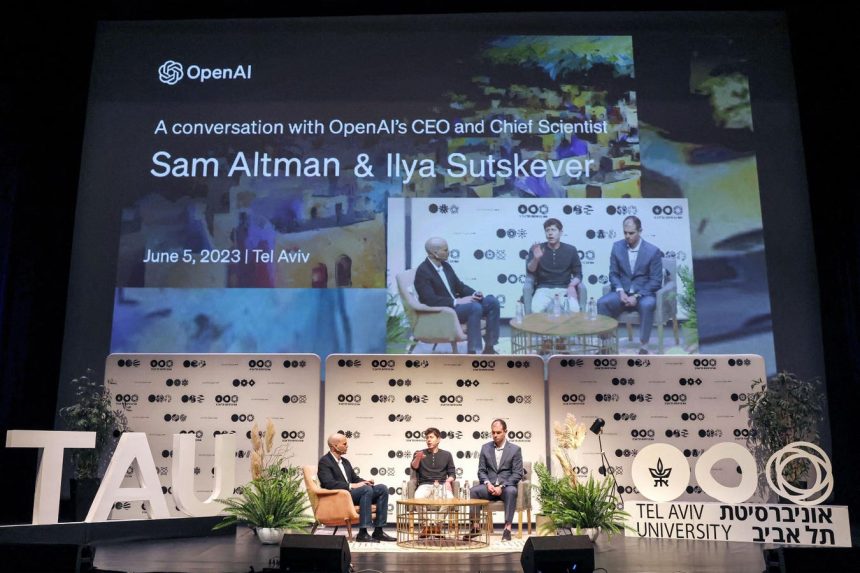Israel has emerged as a global powerhouse in artificial intelligence, boasting an AI startup density two to four times greater than that of the United States or Europe. This vibrant ecosystem is fueled by a convergence of factors: a high concentration of AI talent, strategic support from both domestic and international entities, and a unique focus on developing practical AI applications across diverse sectors. AI startups represent a significant portion of Israel’s tech landscape, comprising 30% of all startups and attracting a disproportionate share of funding, securing up to 40% of funding rounds and 47% of total investments. This thriving sector is further bolstered by Israel’s leading position in AI talent concentration and skill penetration, surpassing the global average by a significant margin. This confluence of talent, investment, and strategic focus positions Israel at the forefront of the global AI revolution.
A distinguishing characteristic of Israeli AI startups is their emphasis on “vertical” solutions, tailoring AI technologies to specific industry needs. This targeted approach leverages domain-specific data and expertise to create impactful solutions in areas such as cybersecurity, healthcare, agriculture, and fintech. This contrasts with the “horizontal” AI approach often pursued by larger tech companies, which focuses on developing general-purpose AI technologies. This vertical focus allows Israeli startups to address niche market challenges with precision and efficiency, establishing them as leaders in practical AI applications. The success of this strategy is evident in the proliferation of Israeli AI startups, with over 2,000 actively developing next-generation AI solutions.
The collaborative nature of Israel’s AI ecosystem further contributes to its success. Multinational corporations, recognizing Israel’s talent pool and innovative spirit, have established a significant presence in the country. Over 400 multinational companies, including tech giants like Nvidia, Microsoft, Google, Amazon, Meta, and Apple, operate R&D centers in Israel, fostering a dynamic exchange of knowledge and expertise. Nvidia, for example, has a substantial presence in Israel, collaborating closely with local universities and contributing significantly to the country’s AI research and development. This influx of international investment and collaboration not only fuels innovation but also exposes Israeli startups to global markets and opportunities.
The acquisition of Israeli AI startups by multinational corporations further underscores their global appeal. Over the past decade, the rate of acquisition of Israeli AI startups by top multinational companies has been remarkably high, highlighting the value and innovation these startups bring to the global AI landscape. These acquisitions often serve as catalysts for further growth and development within the Israeli AI ecosystem, as acquired technologies are integrated into larger platforms and founders gain experience and resources to launch new ventures. This dynamic interplay between startups and established corporations creates a virtuous cycle of innovation, further strengthening Israel’s position as a global AI leader.
The “vertical” focus of Israeli AI startups is often driven by unique data sets and deep domain expertise. Israel’s healthcare system, for instance, has amassed vast amounts of digitized data over decades, providing a fertile ground for AI-driven innovations in personalized medicine, diagnostics, and medication safety. Startups like Promise Bio, AEYE Health, and MedAware are prime examples of how this data-rich environment fuels the development of cutting-edge AI solutions that address critical healthcare challenges. Similarly, Israeli expertise in cybersecurity, climate tech, and fintech has spurred the development of AI-powered solutions tailored to these sectors, leveraging unique data and knowledge to create impactful applications.
While the majority of Israeli AI startups specialize in vertical solutions, several have also made significant strides in developing horizontal AI technologies. Companies like Hailo, specializing in AI processors for edge devices, and AI21, developing advanced foundation models, are competing with global leaders in these fields. These horizontal AI ventures demonstrate Israel’s versatility and capacity to innovate across the spectrum of AI technology, further solidifying its position as a key player in the global AI landscape. The success of these companies underscores the depth and breadth of Israel’s AI ecosystem, highlighting its ability to contribute to both niche applications and fundamental AI advancements.



